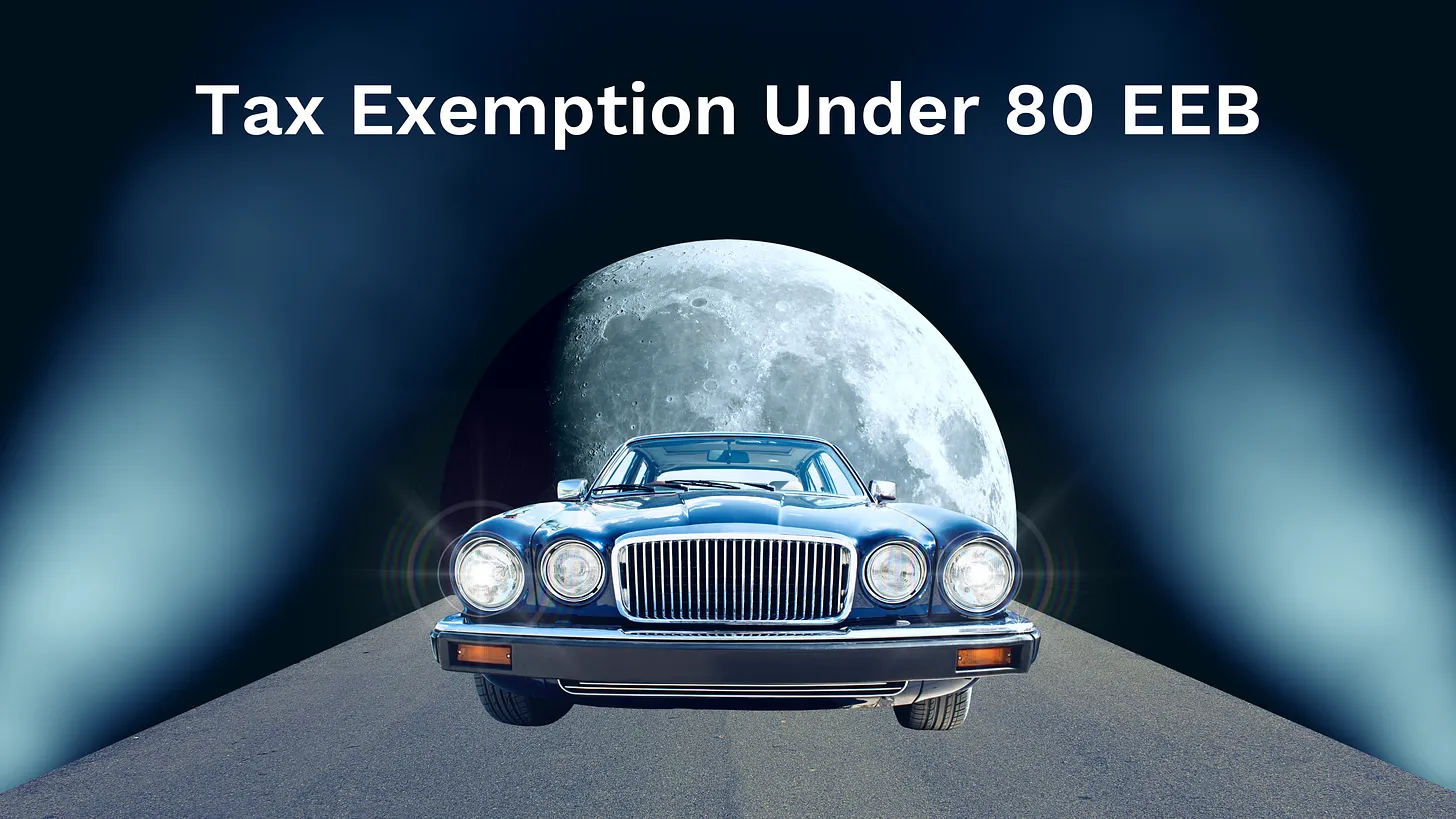
About Section 80EEB
The Income Tax Act of 1961's Section 80EEB focuses on the interest payments made on loans taken out to purchase an electric vehicle for personal or professional use. Additionally, it works with both two and four-wheelers. Before the loan is paid off, you can still take advantage of Section 80EEB deductions.
How much may you deduct under Section 80EEB?
A deduction of up to 1,50,000 is permitted under Section 80EEB. You can purchase an electric car for your own usage or for use in your business as an assessee. If you borrowed money to buy an EV for work and the interest paid on that loan is more than 1,50,000 rupees, you can deduct that extra sum from your company expenditures. To do this, though, make sure the company name or the owner of the firm is included on the vehicle's registration.
NOTE: When filing the return, you must obtain the interest paid certificate and retain records like the tax invoice and loan documentation close to hand.
Section 80EEB Eligibility
The Section 80EEB deduction is only available to individuals. However, you are qualified for deductions under this provision if you are an individual who owns a business (a proprietorship firm) and the car is used for business travel. Companies, partnership businesses, HUFs, and other entities are not eligible to deduct expenses under Section 80EEB.
So, let's say that on June 10, 2021, you get a loan to buy an electric bike. You bought this car so you could serve customers lunch and/or dinner made from scratch. You are now qualified to take advantage of a deduction under Section 80EEB since you are an individual operating a proprietary business.
Let's now modify the aforementioned instance a little. The only difference in this situation, everything else is still the same, is that you jointly manage this company with your friend.
Due to the fact that this is now a partnership business, you are no longer qualified for the Section 80EEB deduction.
What prerequisites must be met to claim the section 80EEB deduction?
To purchase an electric vehicle, you must take out a loan. The Income Tax Act defines an electric vehicle as one that is solely powered by an electric motor, whose traction energy is supplied solely by traction batteries installed in the vehicle, and that has an electric regenerative braking system that allows for the conversion of kinetic energy from the vehicle into electrical energy when braking.
Let's now modify the aforementioned instance a little. The only difference in this situation, everything else is still the same, is that you jointly manage this company with your friend. Due to the fact that this is now a partnership business, you are no longer qualified for the Section 80EEB deduction.
What prerequisites must be met to claim the section 80EEB deduction?
To purchase an electric vehicle, you must take out a loan. The Income Tax Act defines an electric vehicle as one that is solely powered by an electric motor, whose traction energy is supplied solely by traction batteries installed in the vehicle, and that has an electric regenerative braking system that allows for the conversion of kinetic energy from the vehicle into electrical energy when braking.
A financial institution or non-banking financial company must provide the loan (NBFC). Financial institutions are defined in the Income Tax Act as "banking companies to which the Banking Regulation Act, 1949 (10 of 1949) applies, or any bank or banking institution referred to in Section 51 of that Act, and includes any deposit-taking non-banking financial company or a systemically important non-deposit taking non-banking financial company as defined in clauses (e) and (g) of Explanation 4 to Section 43B]".
It is recommended that the loan be approved between April 1, 2019, and March 31, 2023.
Final words
In order to encourage electric mobility in India, the Section 80EEB deduction has been implemented. The ultimate objective is to promote demand for electric vehicles by providing financial incentives for their purchase. Therefore, despite the fact that electric vehicles already provide a wealth of environmental advantages, the government is attempting to encourage individuals to purchase them by providing incentives like tax exemptions on loan interest repayment.